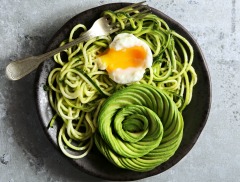Don't just meal plan... meal plan intelligently - with Meal Genius! Sign up for our free newsletter to get delicious recipes, sample meal plans and a whole lot more!
Herbs, Dill
Dill weed is a tall, feathery annual, Anethum graveolens, in the Umbelliferae or parsley family.
Both dill seed and weed (dried leaves) come from the same plant. However, the flavor of fresh dill is very different from the dried variety.
Because dill weed loses its fragrance, it should be added toward the end of cooking time for your dish.
Antioxidant Score (ORAC)=6,552
The Benefits
- Special diets: Autoimmune Paleo Diet, Candida Diet, Diabetic, Elimination Diet, Gluten-Free Diet, Gluten-Free/Dairy-Free Diet, Grain-Free Diet, Low Acid Diet, Low Carb Diet, Low FODMAP Diet, Low Histamine Diet, Low Oxalate Diet, Low Starch Diet, Paleo Diet (Light), Paleo Diet (Strict), PCOS Diet, Pescetarian Diet, Primal Diet, Thyroid Diet, Vegetarian Diet, Whole Food
- Excellent Source of:
- Good Source of:
- Preferences: No Fish, No Red Meat, No Pork, No Eggs, No Shellfish, No Gluten, No Nuts, No Seeds, No Soy, No Dairy, No Poultry, No Molds, No Coconut, No Pseudograins, No Citrus, No Nightshade, No Corn, No Yeast, No Peanuts, No Legumes, No Grains, Low Carbohydrate, Low Cholesterol, Low Fat, Low Sodium, Low Sugars, Low Saturated Fat
Related Foods
Related Nutrients
Selecting and Storing
Store fresh dill weed in the crisper of your refrigerator, loosely wrapped, for up to a week. Dried dill weed can be kept for up to 6 months in a cool, dry place.









